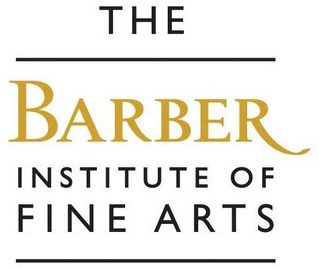How can exploring pictures in an art gallery improve management and marketing practice for business leaders of the future?
That is the question that has been considered by more than 450 students from Birmingham Business School visiting the Barber’s galleries as part of a groundbreaking initiative aimed at decolonising business and management education.
During February and March, groups of undergraduate Management and postgraduate Marketing students were introduced to the gallery’s collection through a series of guided tours, developed and delivered by Business School and Barber staff, including one of the museum’s freelance facilitators, Jon Sleigh.
Tours focused on a selection of paintings, sculpture and artefacts in the Barber’s collection ranging from a replica carved Head of Amenhotep III and a portrait of Lady Barber, via a 17th-century Spanish infantryman’s helmet, a Benin bronze Ikegobo and the iconic Portrait of Countess Golovina.
Tour leaders utilised research and reinterpretation carried out by the Barber’s Collections and Learning and Engagement teams that aims to decolonise works in the gallery. This has involved acknowledging, in picture labels and other channels of interpretation, problematic issues such as colonial provenance, the way some artworks depict people of colour, hidden LGBTQ+ histories, and the many varied and changing perspectives we bring to a work of art.
The Business School project was funded by a £1,000 Principles for Responsible Management Education UK grant awarded for innovative teaching pedagogies, secured by Business School leads Caroline Chapain, Lecturer in Management and Teaching and Learning Lead for the Work Inclusivity Research Centre, and Emma Surman, Senior Lecturer in Marketing and School PRME Champion
Inspiration for the collaboration came from a presentation Caroline attended, given by Barber Head of Public Engagement Jen Ridding, on how the Barber’s collection had been used to enhance student learning about death and dying in an ongoing partnership with the College of Medical and Dental Sciences – and the realisation that a similar approach could be adopted for Birmingham Business School’s decolonisation project.
“We have a very international corps of business students, but this is a western, British university, and there are western positions about learning, about critical thinking – when the students go back to China or Africa, what do those western theories mean?” said Caroline. “It is about looking at identity, power, race and how these play off in management studies.”
Emma added “I teach a module on responsible marketing and society and we look at subjects like supply chain issues, modern slavery, production and consumption, the ethics of markets, responsible advertising. The objects in the gallery open up new ways to explore and understand these issues. When you look at the first level there’s a beautiful piece of art, but then you consider it further and there are lots of ethical and responsibility issues that are central to responsible marketing activity. “
These considerations also affect how today’s management and marketing students will relate to, and manage their staff in the future – as well as communications with their customers and clients – issues that have been followed up by seminars back in the classroom.
Using the arts to provide a new perspective on business education is not new – drama, poetry and drawing have all been harnessed in management training to explore everything from role-play to creative thinking, says Caroline, with some organisations partnering with high-profile organisations including the Royal Shakespeare Company.
However, as far as Caroline and Emma are aware, using an art gallery to talk about the decolonisation of the curriculum and business practices is a first – and an approach that the Business School would certainly like to develop in future.
“The workshops have been hugely beneficial in making students aware of the ethical issues involved in the decisions they will make in the future, and also in giving them confidence and a sense of agency – that they are not just cogs in a machine, but that they could have an important role to play.”
Caroline added: “The workshops have given students the confidence and space to talk about their identities and how it can impact their day-to-day lives and future career prospects; many have really appreciated to be given the opportunity to advocate for progressive change in both societies and business practices.”
The Barber’s Head of Public Engagement, Jen Ridding, added: “This collaboration once again demonstrates the value of having a world-class museum on campus to enhance uniquely the University’s teaching, learning and research. We can literally take learning out of its usual comfort zone by introducing students to thought-provoking visual stimuli, an inspiring physical environment and access to a whole suite of different professionals, approaches and ideas. Interdisciplinary partnerships such as this one contribute to creating a student learning experience that is intellectually challenging, inclusive, innovative and future-focussed. The Barber’s collection is surprisingly versatile and we thrive on activating it to support academic colleagues and students to address the contemporary challenges of our times.”
The project is now being written up as a research paper by Caroline and Emma.
Published April 2022.
